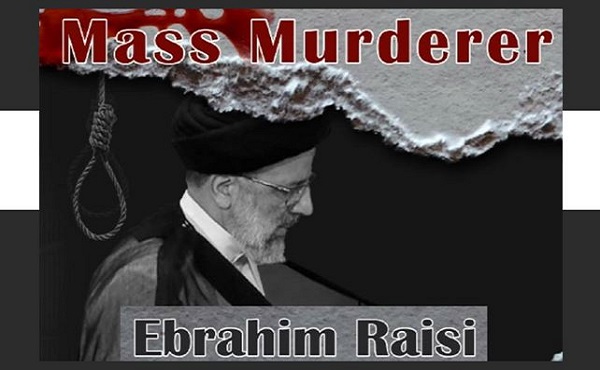Iranians are supporting the Mojahedin-e-Khalq’s call for a general election boycott on Friday, June 18, recognizing that this is just a way for Supreme Leader Ali Khamenei to appoint his chosen candidate – this time it’s Judiciary Chief Ebrahim Raisi – under the guise of democracy.
This long-held tradition allows Khamenei to reward various officials for their loyalty to him, which often means their brutal suppression of the Iranian people, for which the offenders are never held to account. In Raisi’s case, this includes his:
- Overseeing of the arbitrary killings of 1,500 protesters in the November 2019 uprising and the arrest and torture of thousands more
- his transfer of money from the Astan-e Quds Rezavi foundation to various terrorist groups
- his role on the Death Committee during the 1988 massacre, where he sent thousands of political prisoners to their death
As mentioned, Iranian officials who commit these crimes have never been held accountable in Iran, but they also are routinely not brought to justice internationally. This is not only a result of the international community’s desire to protect their trade with Iran over human rights, but also disinformation campaigns paid for by the regime to cover up the massacre.
For example, former Iranian ambassador to the United Nations Mohammad Jafar Mahallati, who currently teaches at Oberlin College, supposedly played a key role in helping to suppress information about the massacre immediately afterwards. He still defends the regime by downplaying officials’ criminal records.
Other regime apologists include Hossein Mousavian at the Woodrow Wilson School of Public and International Affairs, recently-indicted political scientist Kaveh Lotfolah Afrasiabi, and founder of the National Iranian-American Council Trita Parsi.
Afrasiabi was indicted in January for not registering as a foreign asset, while in 2019 three American Senators wrote to the Justice Department saying that Parsi and the NIAC should be investigated. After it was revealed that Parsi collaborated with Afrasiabi, nine US House members called for a more far-reaching investigation into Americans lobbying for the regime for money.
The Iranian Resistance wrote: “Investigations are equally warranted [throughout] the world, and they are arguably more urgent than ever at a time when the regime is working to elevate one of its most notorious human rights abusers to the position of president… As long as Iran’s influence networks remain intact throughout the West, that project of suppression will be far too easy. But if the US and Europe are committed to rooting them out, they already know where to begin.”
